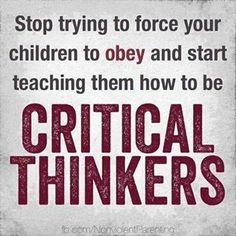
In Parenting is Teaching, not Preaching, I explained why kids resent parents who take too long to explain things and why a relationship based on lecturing your kids is not healthy and makes the kids just not listen to you.
Today, I share five tips that will make the communication and cooperation at home better for you and show you how to switch your parenting from preaching to teaching.
1. No Pink Elephants
Parents are used to telling their kids what not to do. The words “don’t”, “stop” and “no” are very common in the parenting vocabulary. Unfortunately, using them only makes the child do more of what you are trying to stop. Read Beware of Pink Elephants for more.
Rather than telling your kids what not to do, tell them what you want them to do and notice how their behavior changes dramatically.
After every one of my workshops with parents and teachers, I got an email or a phone call telling me how using positive language worked straight away. Every time you have anything to tell your child about what not to do/think/be/feel, remember this is an obstacle in your relationship.
2. Keep it Short and Sweet

Your kids don’t need your lecture. They need your love and understanding. If you want to say something, keep it short and sweet. If you take too long, you dilute your own message. Think about it this way: for kids, if you take too long, it sounds like “blah, blah, blah” and they stop listening. If you cannot summarize the main idea in one sentence (OK, two sentences, or even one minute), how do you expect them to be able to get the main idea?
Many parents ask me, “Well, Ronit, how do we transfer values, ideas and beliefs if we have to do it in under one-minute?”
Good question!
You model them in your own behavior and share stories without preaching them directly. You see, even at university lectures, when the teacher is standing at the front and sharing his or her knowledge, students are less knowledgeable when they take part in a workshop, where the teacher is a facilitator of activities.
Lecturers give knowledge, but they do not have any way of controlling what the students learn. Facilitators create learning experiences, so they control 100% of the learning. Some change less, some change more, but all of the students change, and once they make that change, it will stay with them forever.
If you want to share values with your kids, take them on a trip. If you want them to know you, go with them to the movies, read a book with them and tell them about your day. If you want to send them the message that it is important to care, ask them about their day. If you want to sends them the message of respect, support and encourage them even when they do not do exactly what you think they should do.
Your values and ideas are received when you demonstrate them, not when you talk about them.
3. Reminders, not Orders

Sometimes, kids need many reminders until they make something a habit. If you are using this strategy, do not take too long and stay calm. Make sure not to give orders, because they only turn on the defense mechanism. Your home is not an army base (even when it is on an army base), you are not the General and your children are not your subordinates.
The difference between an order and a reminder is in the tone of the voice and the body language. One expects obedience and the other invites respect by giving it first.
Your state of mind is also very important. When you are angry (that you have to repeat something over and over again), when you punish or threaten, you lose credibility. Think of anger, punishment and threats as a sign that pops up over your head and says, “I am weak”. When this happens, your children cannot lean on you or trust you to protect them. If you were not weak, you would not have to be angry or use punishment and threats to make them do what you want, right?
Reminders sounds like this: “Please take the dishes to the sink”, and they sound the same, in a calm voice, even if you have to say it 10 times. Take a deep breath and say it again calmly. You are reminding them of the rules and the expectations of them. No need for threats or punishments.

There is also no need for sarcasm (“How many times do I have to tell you?”, “Am I talking to the wall?”, “Are you deaf or something?”, “What is so hard to understand?”, “What’s so special about you that you think you don’t have to clear the table?”, “Do you think the house elves will come and clear the table?”).
Sarcasm is when you ask a question that is actually a hidden statement or when you say something positive, but your tone says the opposite. For example, “That was REAL smart”, when you actually mean, “That was not a smart thing to do”, or “Am I talking to the wall?”, when you actually mean, “I am feeling ignored. Please pay attention to me”.
4. Provide Perspective and Let Them Choose
Parents expect their own kids to have all the knowledge and understanding they have as grownups. They like giving their kids conclusions rather than providing them with different perspectives and allowing them to consider their options.
For example, instead of saying, “You’ll break the mirror”, it is better to say, “The ball is hard and heavy and the mirror is fragile and easy to break”. This way, the kids comes up with the conclusion that it is better not to throw the ball at the mirror by themselves.
If they are given options, they choose. If they do not exercise their choice muscle, it becomes weak and they grow up to be big procrastinators or people who are in constant doubt over the simplest things in life.
5. Ask for Your Kids’ Opinion

When I suggest this to parents, some of them think that when you ask for someone’s opinion, it means you have to accept it, but you don’t.
Asking for someone else’s opinion only means you want to take their opinion into consideration when making your decision. It does not mean you have to accept it. Similarly, you should not think that if your kids ask for your opinion, they must accept it.
I believe you can ask three-year-old kids for their opinion about many things. For example, what to make for dinner, what they suggest you wear if you are trying to decide between two dresses, and even what to buy as a gift for their friend. If you do it when they are young, then by the time they are teens, they will already feel that you care about them, that you are willing to consider their opinion and that you do not think that you are all-knowing and things need to be done your way or else…
Try each of these tips. I promise you that each of them, separately, can change the relationship at home and make your words more valuable to your children, and together, they will transform your family life.
Happy parenting,
Ronit











